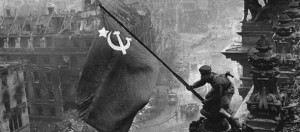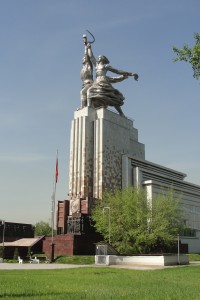By James Thompson
Today A. Shaw and James Thompson presented a dozen red roses and a letter expressing our condolences to the Russian Consul General in Houston. The letter was as follows:
“December 29, 2016
Alexander Zakharov
Consul General, Russia
1333 West Loop South, Ste. 1300
Houston, TX 77027
Dear Alexander Zakharov:
The Houston Communist Party, Houston Peace Council and Houston Socialist Movement want to express our deepest condolences. We are very sad to learn of the tragic recent events. The crash of the airliner in the Black Sea and the assassination of the Russian ambassador to Turkey cause us much sorrow.
Many of us are admirers of the Red Army Choir/Alexandrov Ensemble.
We are also concerned about the tensions between our two great nations and want to express our opposition to further conflict. We are hopeful that the President-elect of the United States will maintain his campaign positions in support of peace with Russia. Any sensible person can easily recognize that a major war between Russia and the US would reduce us all to cockroach food. As Pete Seeger sang many years ago “We can all be cremated equally.”
We applaud Russia’s efforts to establish peace in Syria and hope the next President of the US will work with Russia in an honest atmosphere of cooperation and dialogue in order to neutralize the terrorists who have done so much damage.
Peaceful coexistence rather than delusional allegations should be our one and only goal.
Peace and solidarity,
Houston Communist Party
Houston Peace Council
Houston Socialist Movement”
The consulate staff who received the letter were very gracious and professional. They showed us a display they had organized on a small table. It had flowers and a picture of the assassinated Russian ambassador to Turkey, Andrei Karlov. Needless to say, it was quite moving.
As we were leaving, the consulate staff member, Dmitri, called for better relations between our two countries. We replied simply, “We need peace!” Hopefully, 2017, the 100th anniversary of the Russian revolution which ended the Czarist monarchy and marked the beginning of a socialist government, will bring better relations between the U.S. and the Russian Federation.












